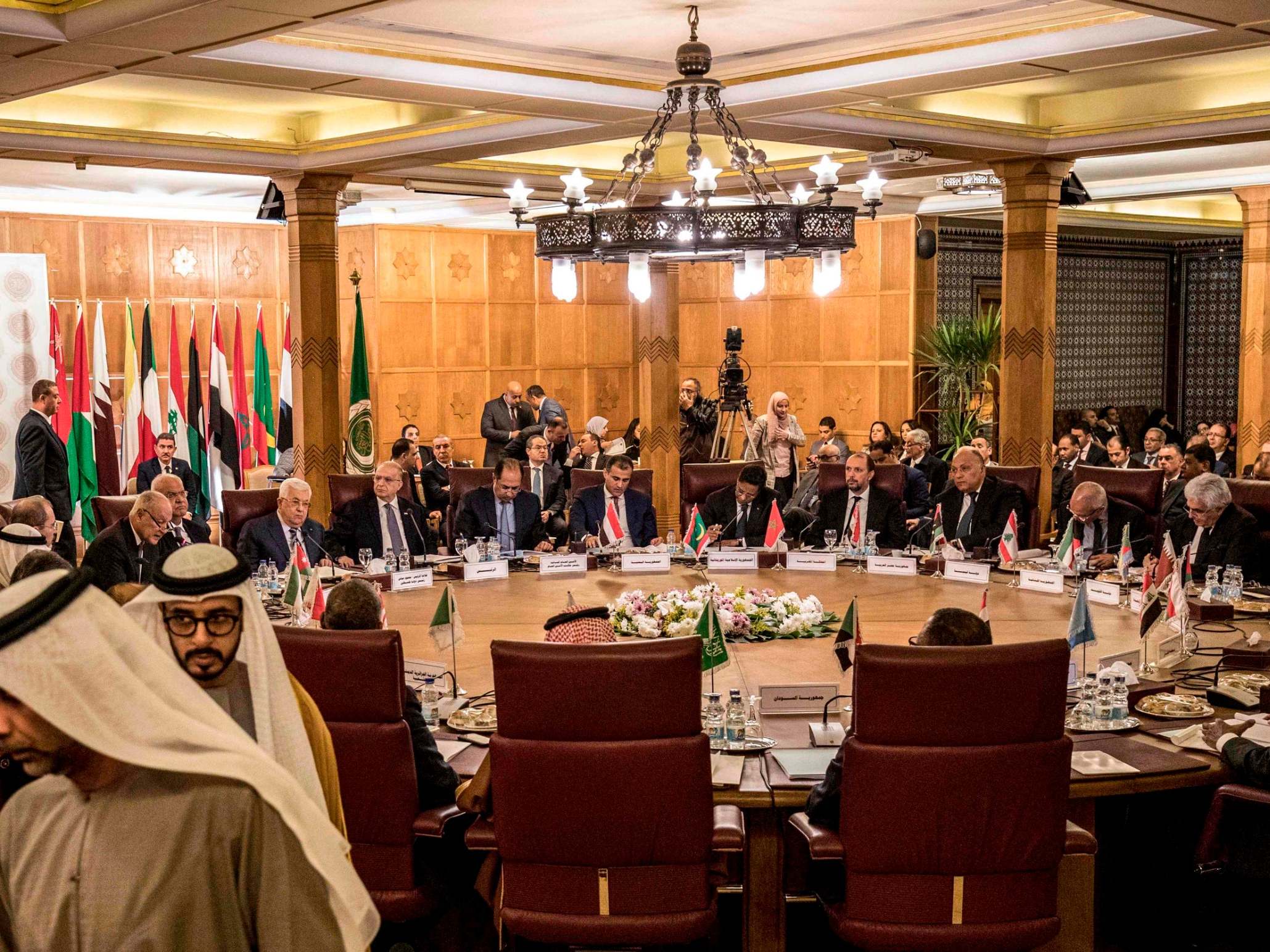Palestinian leaders cut all ties with Israel and US in response to Trump peace plan
President Mahmoud Abbas tells emergency Arab League meeting there will be 'no relations at all' with either country

The Palestinian Authority has cut all ties with Israel and the US after rejecting Donald Trump’s Middle East peace plan.
President Mahmoud Abbas said the were would be "no relations at all" with the two countries as he reiterated his "complete" dismissal of the American leader's proposal, which called for a demilitarised Palestinian state with borders drawn to meet Israeli security needs.
The US president's peace plan, which he unveiled on Tuesday, would grant the Palestinians limited self-rule in parts of the occupied West Bank while allowing Israel to annex all its settlements there and keep nearly all of east Jerusalem.
At an emergency one-day Arab League meeting in the Egyptian capital Cairo on Saturday, Mr Abbas said: “We’ve informed the Israeli side ... that there will be no relations at all with them and the United States including security ties.”
There was no immediate comment from US or Israeli officials.
Mr Abbas said he had refused to take Mr Trump’s phone calls and messages, or even to look at a copy of the plan, “because I know he would use that to say he consulted us”.
“I will never accept this solution,” he said. “I will not have it recorded in my history that I have sold Jerusalem.”
He said he remained committed to ending Israeli control of occupied Palestinian territory and establishing a state with its capital in east Jerusalem.
But the Palestinians refused to accept the US as sole mediator in any negotiations with Israel, he added.
Mr Abbas said he would go to the United Nations Security Council and international and regional organisations to “explain our position”.
The Arab League’s head, Ahmed Aboul-Gheit, said Mr Trump's proposal revealed a “sharp turn” in the longstanding US foreign policy regarding the Israeli-Palestinian conflict.
“This turn does not help achieve peace and a just solution,” he added.
Mr Aboul-Gheit called for the two sides to negotiate to reach a “satisfactory solution for both of them”.
A statement issued by the Arab League described Mr Trump's as “a new setback for the three-decade peace efforts”.
It said Arab foreign ministers “reject the US-Israeli deal of the century because it did not meet the minimum rights and aspirations of the Palestinian people”.
It cited the 2002 Arab Peace Initiative as an Arab-accepted settlement to the conflict. That proposal offered Israel normal ties with Arab states in return for Palestinian statehood on territory occupied by Israel in 1967.
Mr Trump unveiled his own long-awaited peace plan in Washington at joint press conference with Israeli prime minister Benjamin Netanyahu.
The proposal would allow Israel to annex all its West Bank settlements – which the Palestinians and most of the international community view as illegal – as well as the Jordan Valley, which accounts for roughly a quarter of the West Bank.
In return, the Palestinians would be granted statehood in Gaza, scattered chunks of the West Bank and some neighbourhoods on the outskirts of Jerusalem, all linked together by a new network of roads, bridges and tunnels.

Israel would control the state’s borders and airspace and maintain overall security authority.
Critics of the proposals say this would rob Palestinian statehood of any meaning.
The plan would also abolish the right of return for Palestinian refugees displaced by the 1948 war and their descendants, a key Palestinian demand.
The entire agreement would be dependent on Gaza’s Hamas rulers and other armed groups disarming, something they have always adamantly rejected.
Ambassadors from the United Arab Emirates, Bahrain and Oman attended the unveiling of Mr Trump's plan.
Saudi Arabia and Egypt, Arab states that are close US allies, said they appreciated Mr Trump’s efforts and called for renewed negotiations without commenting on the plan’s content.
Additional reporting by Associated Press.
Join our commenting forum
Join thought-provoking conversations, follow other Independent readers and see their replies
Comments
Bookmark popover
Removed from bookmarks